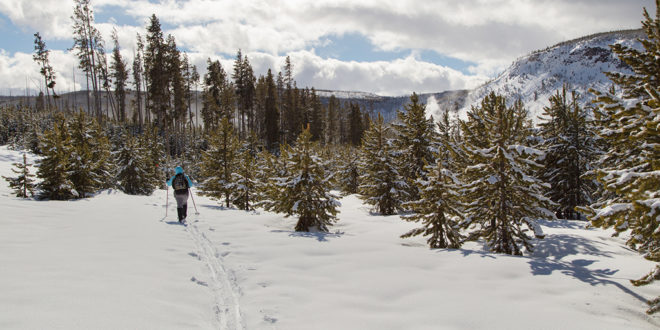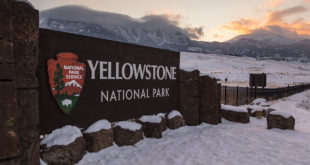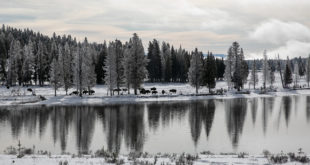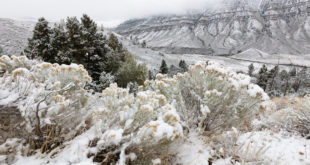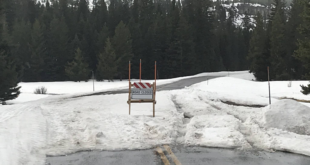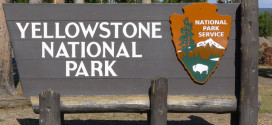While other National Parks struggle with rowdy crowds and overflowing garbage bins, things are considerably more sedate and organized in the current Yellowstone shutdown, as area businesses and concessionaires pick up the slack.
In previous shutdowns, the decision was made by government officials to shut down the National Parks. With the current shutdown, the Trump Administration has decided to keep the National Parks open–and unsupervised. You can imagine the ensuing chaos in warmer-weather parks: garbage is not being picked up, porta-potties are not being serviced, and campground are not being supervised. From AP:
In the southern Sierra Nevada in Central California, some areas of the Sequoia and Kings Canyon national parks were closed Monday evening. In Sequoia, home to immense and ancient giant sequoias, General Highway was closed because overflowing trash bins were spreading litter and posed a threat to wildlife and the icy, jammed roadway was seeing up to three-hour delays, according to the National Park Service.
Also closed was the Grant Tree Trail, a popular hiking spot, because the government shutdown halted maintenance and left the path dangerously slick from ice and snow, with at least one injury reported, the park service said.
Campers at Joshua Tree National Park in Southern California’s deserts were reporting squabbles as different families laid claims to sites, with no rangers on hand to adjudicate, said Ethan Feltges, who operates the Coyote Corner gift shop outside Joshua Tree.
On the good-news side of the equation: we’re not seeing the same effect in the Yellowstone shutdown. Most roads throughout the Park were closed in November, so tourists don’t have nearly the access they do in the likes of Yosemite or Joshua Tree National Park. Concessionaires already play a large role in winter operations, so the biggest impact of the Yellowstone shutdown has been grooming roads both within the Park and plowing the highway between the North Entrance and Cooke City. Those costs are currently being borne by local businesses who rely on Yellowstone tourism:
In Yellowstone National Park, private companies have picked up some of the maintenance normally done by federal workers. The contractors that operate park tours by snowmobile, buses and vans are grooming trails, hauling trash and replacing toilet paper at pit toilets and restrooms along their routes.
Nearly all roads inside Yellowstone are normally closed for winter, meaning most visitors at this time of the year access park attractions like Old Faithful or the Grand Canyon of the Yellowstone through guides. Those guides are splitting the cost of grooming the trails used by their vehicles to keep their operations going, said Travis Watt, general manager of See Yellowstone Alpen Guides based in West Yellowstone, Montana.
The tour companies can likely keep this system going through the entire winter season if they need to, Watt said.
RELATED STORIES: No Grinch Here: Yellowstone Remains Open During Government Shutdown
Image of a skier on the trail from Black Sand Pool to Black Sand Basin courtesy NPS/Jacob W. Frank.
 Yellowstone Insider Your Complete Guide to America's First National Park
Yellowstone Insider Your Complete Guide to America's First National Park
